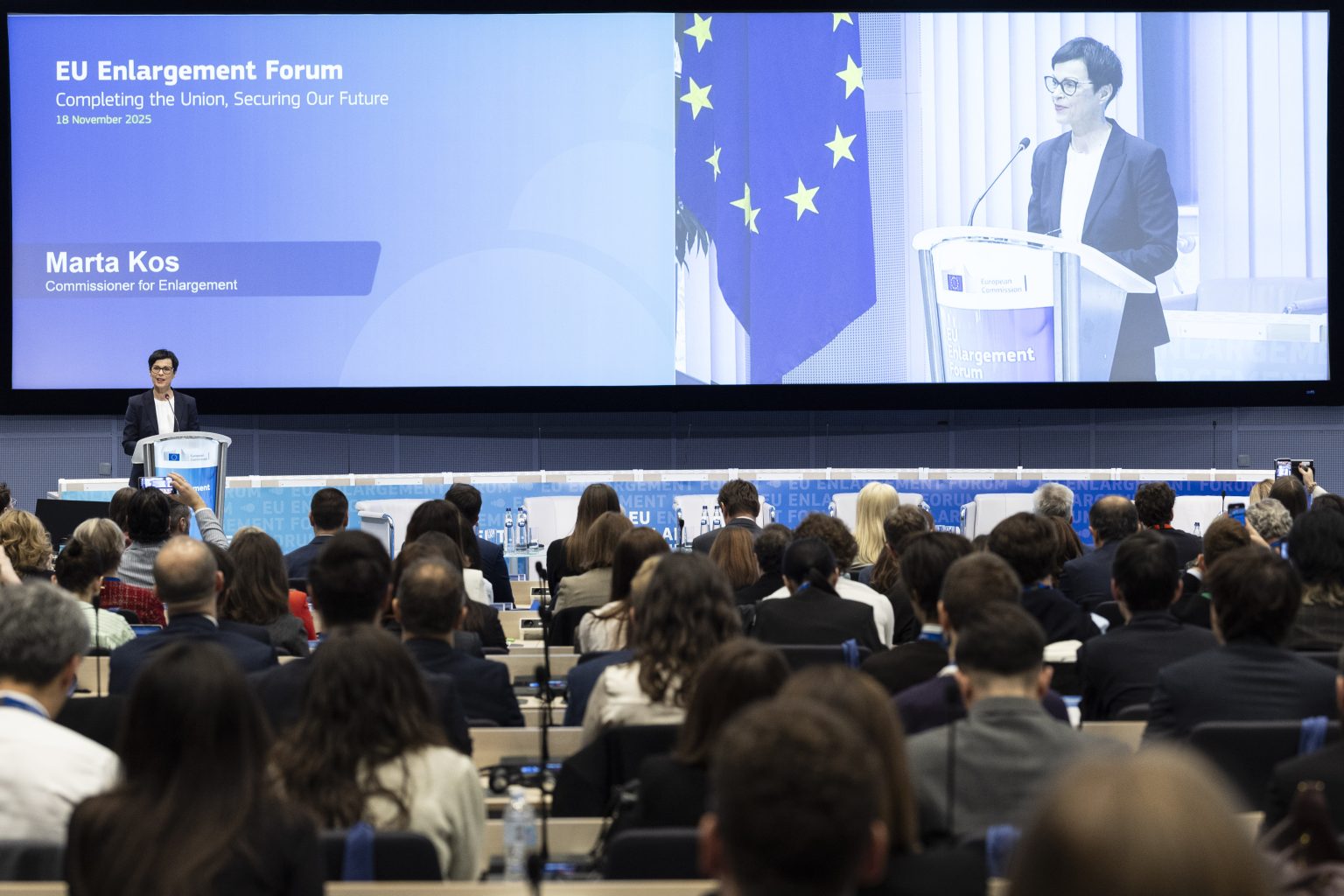From Brussels: Expert Shares Insights from First-Ever EU Enlargement Forum

Iryna Mykulych, elected Europe and Central Asia representative in the Civil Society Policy Forum (CSPF) at the World Bank & IMF, shared her insights from the first-ever EU Enlargement Forum in Brussels.
The Gaze reports on it, referring to a post made by Iryna Mykulych on Facebook.
The forum is a new platform for open discussion on EU enlargement and the role of candidate countries in European security.
It brought together high-level officials, including European Commission President Ursula von der Leyen, Commissioner Marta Kos, ministers, MEPs, diplomats, and civil society representatives.
Iryna Mykulych described the forum as a new platform for open discussion on the role of candidate countries in strengthening European security.
She noted that discussions were candid and focused on real challenges, political risks, and difficult decisions, rather than formal protocol. Key messages emphasized that EU enlargement is an investment in shared security and freedom, with Ukraine central to a complete European security system.
Iryna highlighted that political obstacles were addressed frankly, with a strong focus on implementing reforms regardless of internal opposition within member states.
“When asked about political obstacles, the answer was as straightforward as possible: ‘Don’t think about Orbán — implement reforms,’” Mykulych wrote.
She also stressed the important role of civil society, noting discussions on the Civil Society Facility and the updated EU Civil Society Enlargement Strategy, which signal that NGOs are becoming a practical and integral part of the enlargement process.
Moreover, the representative emphasized that the forum underscored a focus on concrete actions to strengthen Europe amid threats and instability, with Ukraine playing a key role in these efforts.
“The EU Enlargement Forum showed that this is not about formalities, but about very practical things — how to strengthen Europe in the face of threats and instability. And Ukraine's role in these processes is obvious,” Iryna concluded.
Meanwhile, at the inaugural EU Enlargement Forum in Brussels, Commissioner Marta Kos outlined three key areas of focus for the EU’s enlargement policy: ensuring credible progress from candidate countries, preparing the EU for new member states, and “enlarging the enlargement” by accelerating integration processes.
Kos emphasized that enlargement is not only a tool for reform in candidate countries but also an opportunity for the EU to reflect on its own social, economic, and governance models. She stressed that democratic structures and the rule of law must be respected, with no shortcuts allowed.
“I am often asked, will those geopolitical arguments mean we should turn a blind eye and get new members no matter what. No, it is exactly the opposite. When democratic structures are weak and the rule of law is deficient, it can open the door to malign influence, to corruption and organised crime”, Kos said.
The forum also addressed the strategic importance of enlargement for European security. Commissioner Andrius Kubilius noted that integrating candidate countries, especially Ukraine and Moldova, strengthens EU defence capabilities and provides a counterbalance to Russian aggression.
As The Gaze reported earlier, the European Union is exploring reforms to its enlargement process that could allow Ukraine and other candidate countries to join the bloc more quickly.
Read more on The Gaze: How Ukraine Is Integrating into the EU Prior to Official Membership